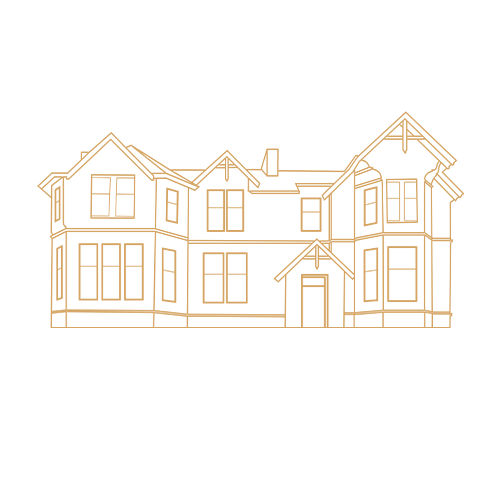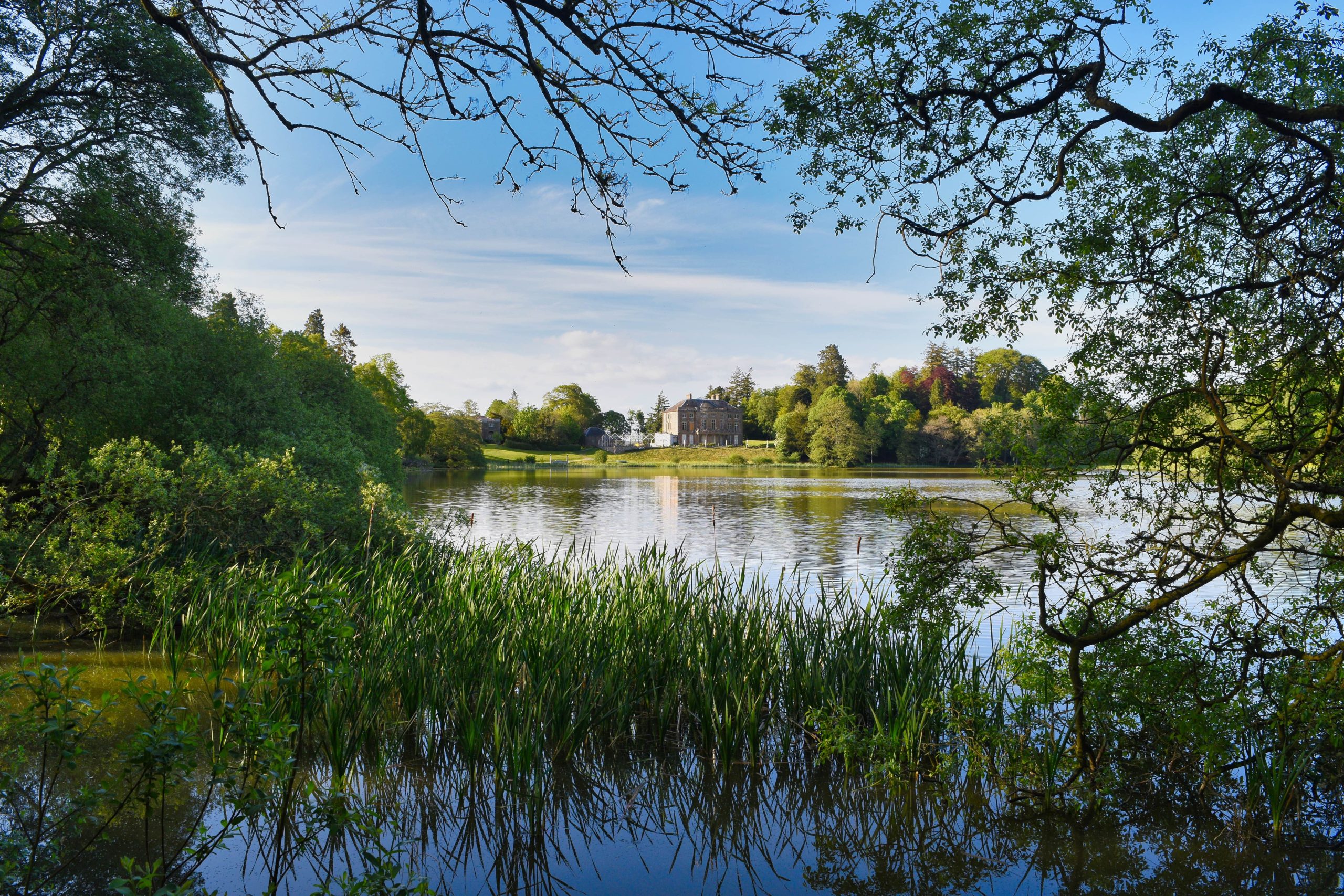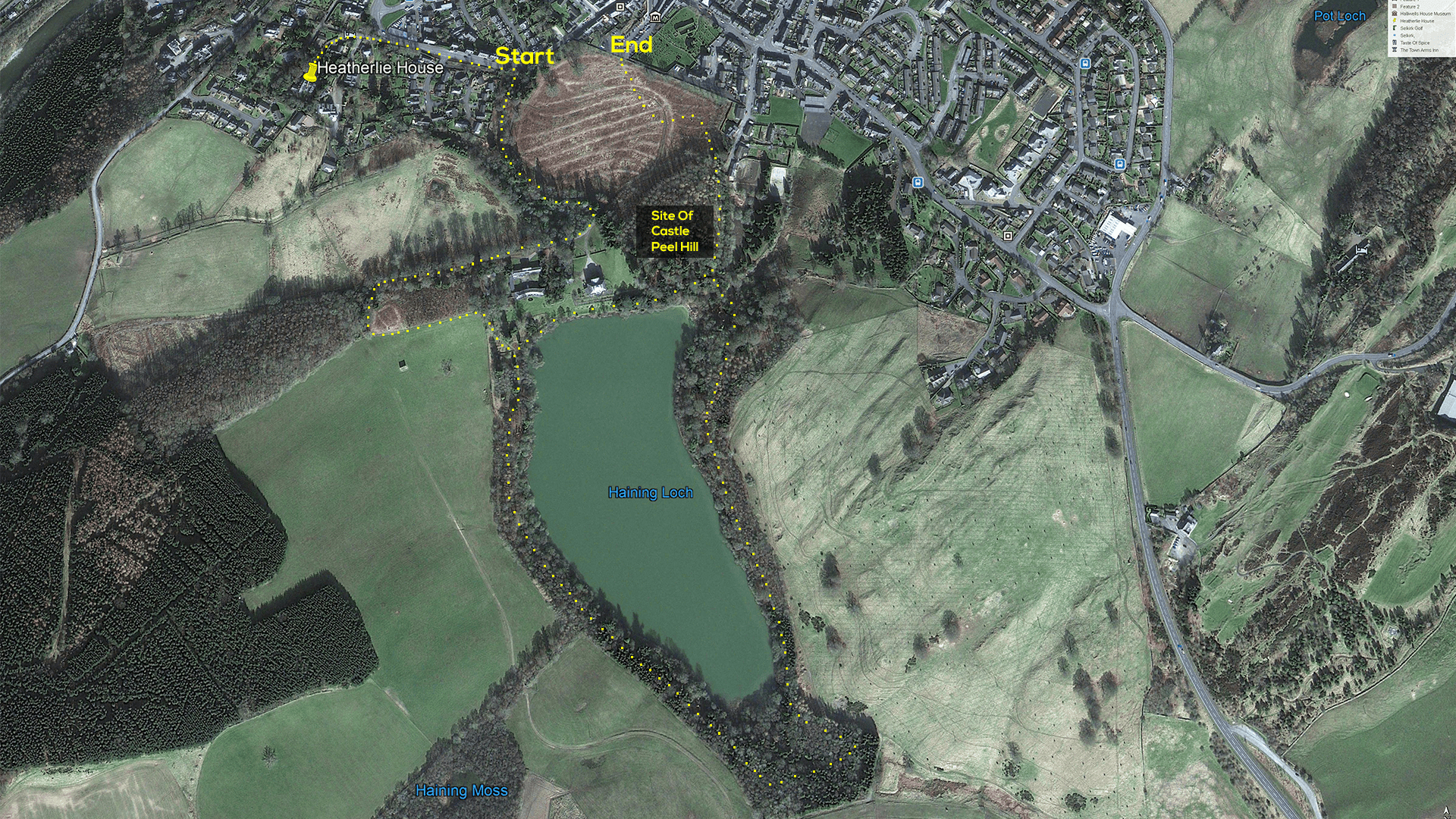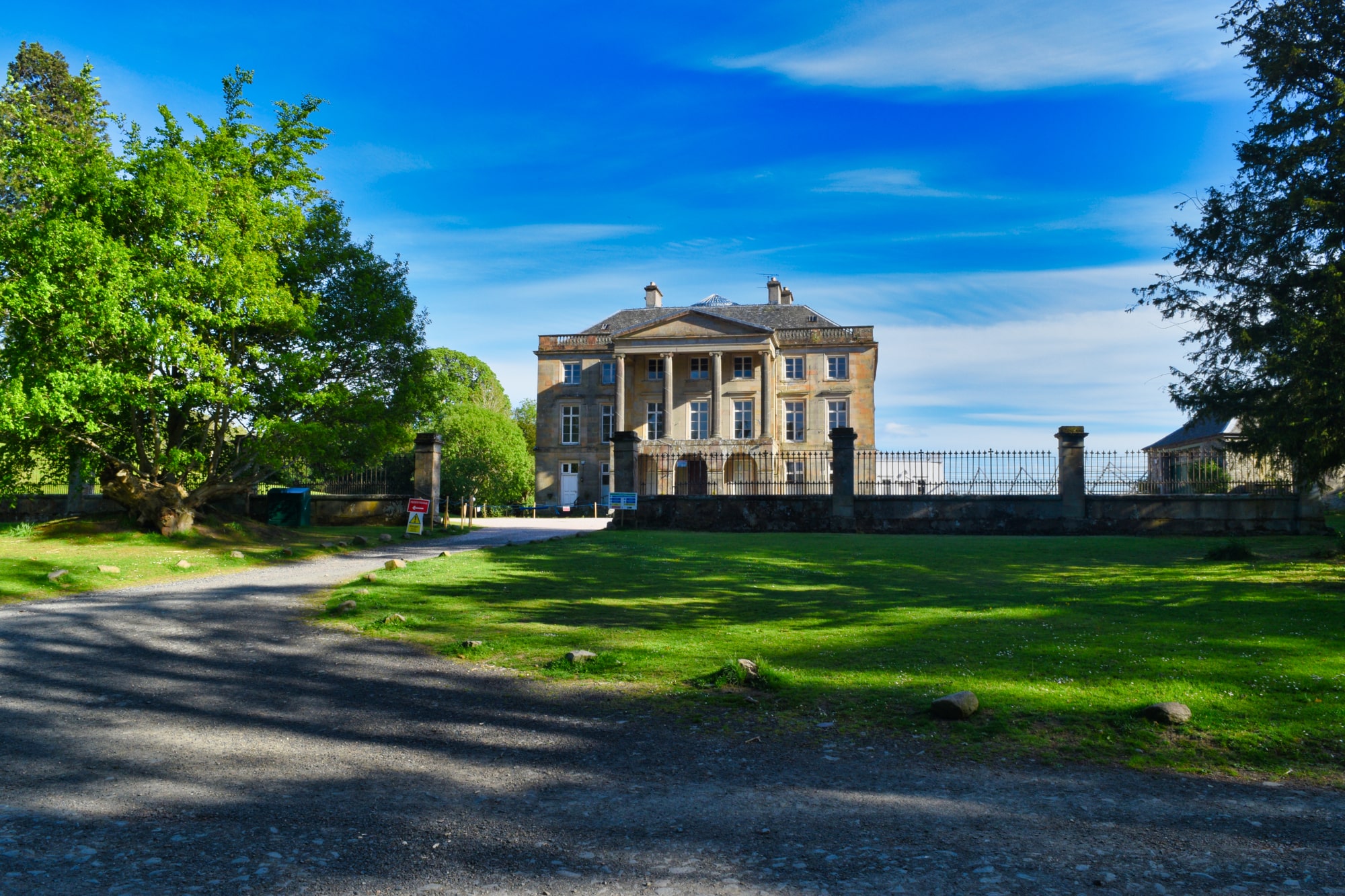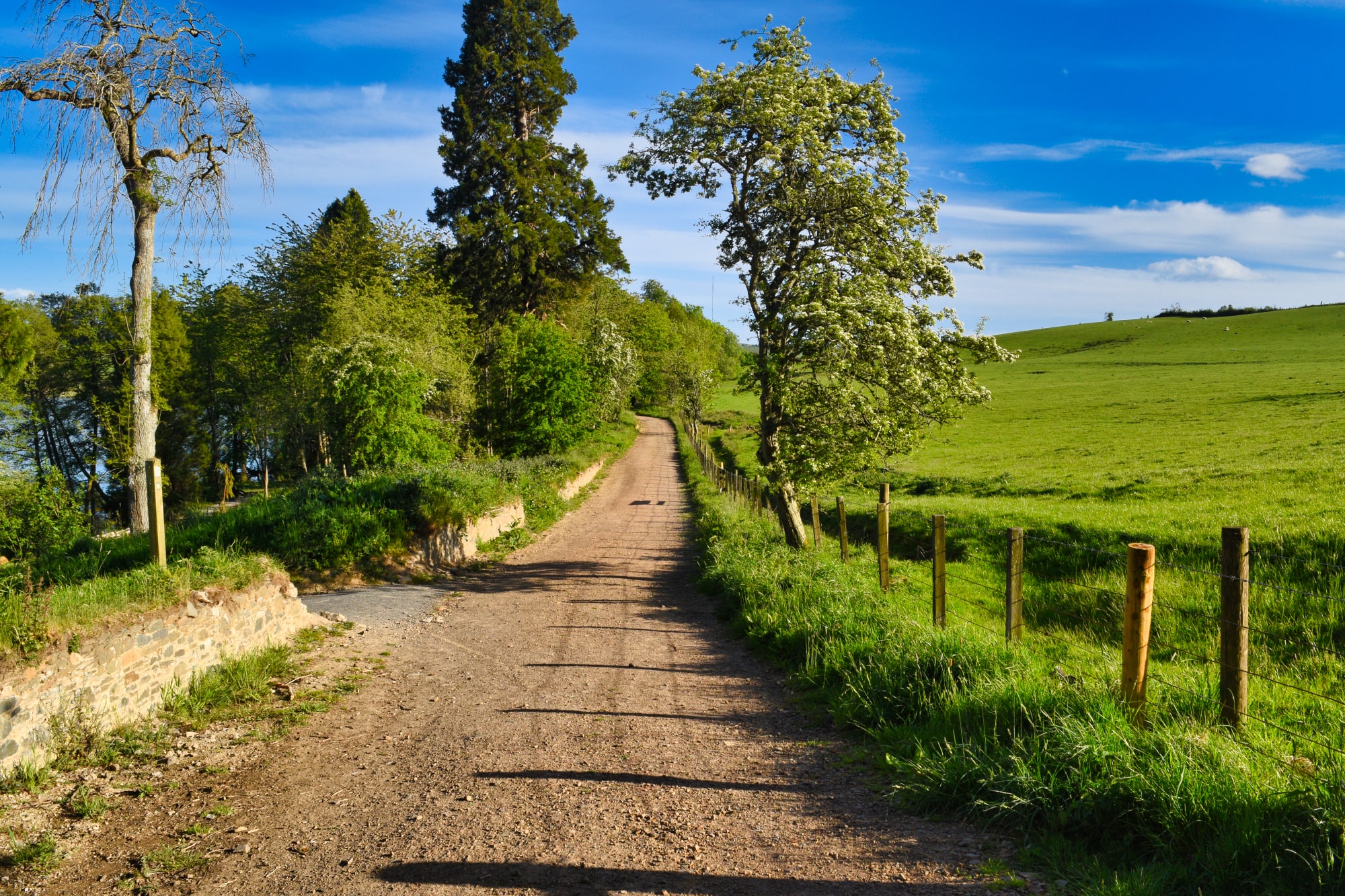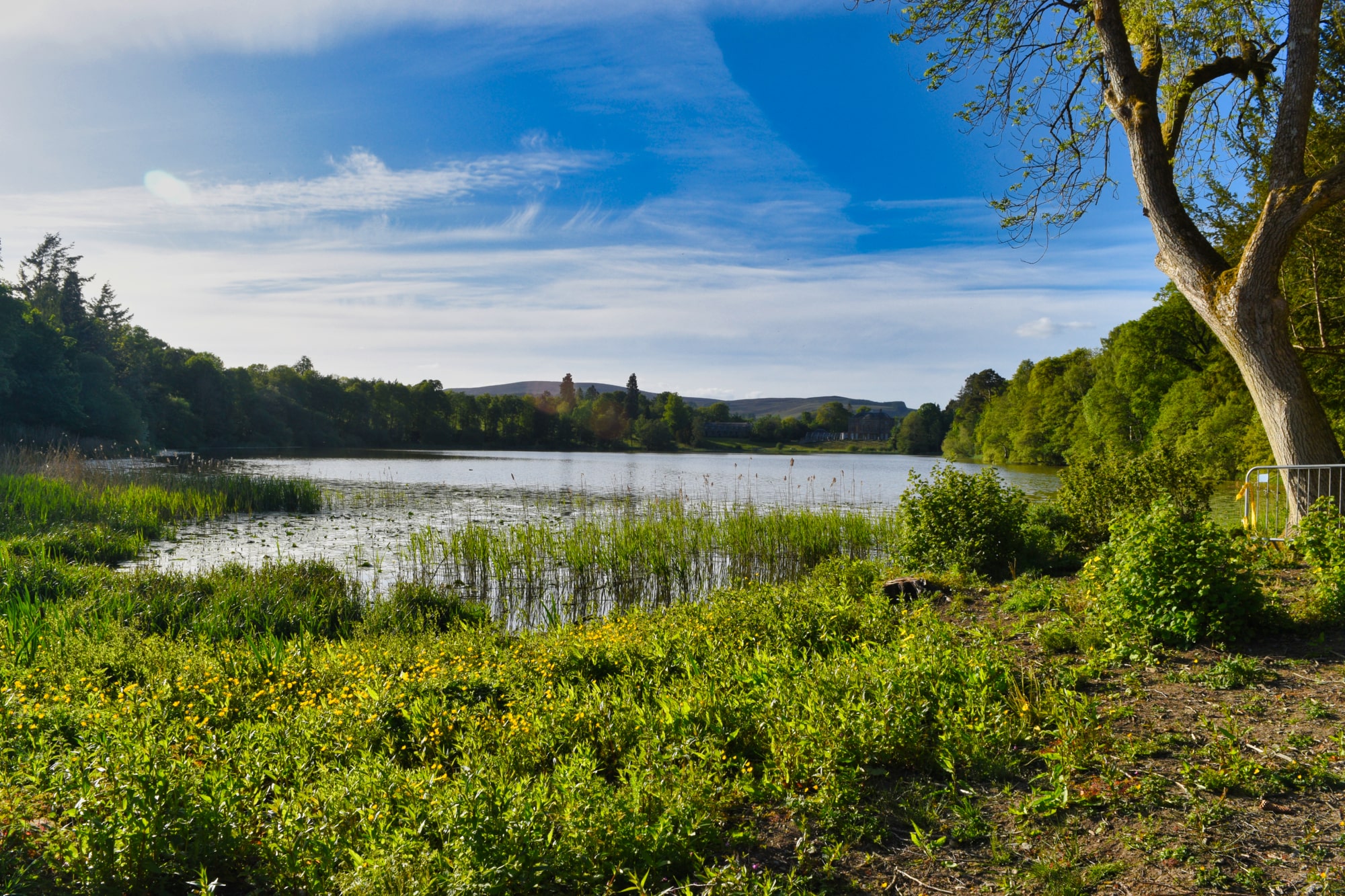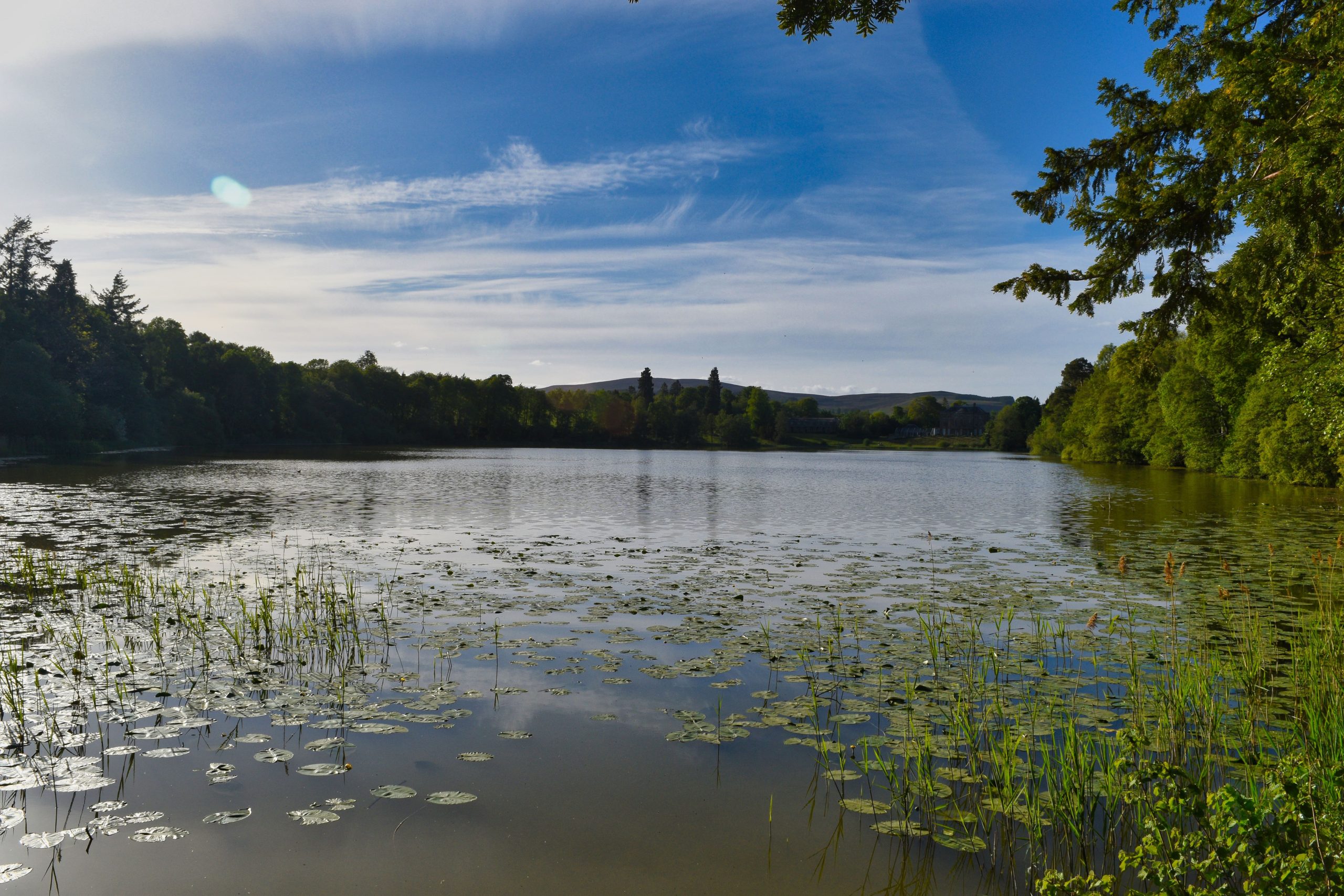The Haining House and Grounds
The estate is situated at the southern end of Selkirk. Since as early as the 15th century, the Haining Estate has abutted the ancient burgh of Selkirk. Once covering 1,240 hectares (3,070 acres) the estate landscape is centred on a small loch with the mansion house at its north.
The house was designed as a simple classical villa attributed to the architect William Elliot who also built the Yair to a similar design. Built-in 1795, under Mark Pringle’s ownership, it is set on a terrace above the loch. The terrace was a landscape feature of the day to make the house look grander and the policies more far-reaching.
In 1810 Pringle’s son John returned home from his travels with a love of all things Classical. In the 1820’s he commissioned Archibald Elliot to transform the house into a Roman villa utilising the contractor John Smith.
The estate buildings also comprise a stable block, the remains of a dovecot and a Town Gate. The latter was part of the renovations in the1820s and is still used as an entrance from the bottom of the West Port.
The Haining Trust
In 2009, Mr A J Nimmo-Smith, the Haining’s last owner, died leaving the Haining in trust ‘for the benefit of the community of Selkirkshire and the wider public’. The Haining Trust aims to regenerate the estate and conserve its cultural significance.
Peel Hill
The mound here is probably natural but has been adapted for defence. Initially, Peel Hill would have housed a timber and earth castle and then later a 14th-century pele. The castle is mentioned in the foundation charter of Selkirk Abbey around 1119. By the late 1300s at the time of the English usurpation, the building seems to have been in a ruinous state.
Find out more at: The Haining
